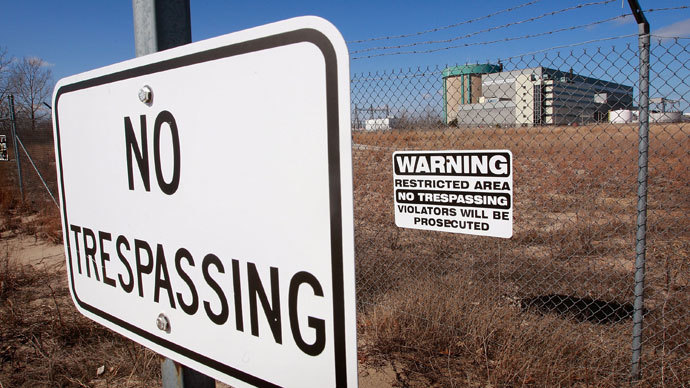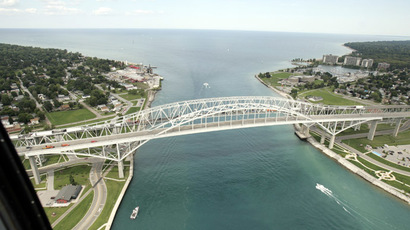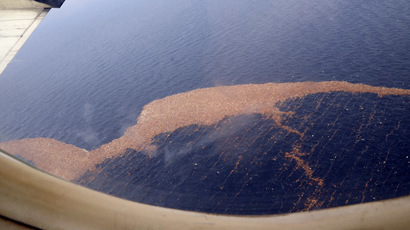Energy Dept. told to halt customer fee for nuclear waste disposal program that doesn’t exist

A federal appeals court ruled Tuesday the US Energy Department must cease collecting fees of around $750 million a year from nuclear energy customers given the waste disposal program they’re funding doesn’t even exist.
Since 1983, the Energy Department has collected a fee -
established by Congress - of a tenth-of-a-cent per each
kilowatt-hour of electricity generated by US nuclear reactors.
Yet since its inception, development of the nuclear waste
disposal program at Yucca Mountain, 100 miles from Las Vegas, has
stalled despite the fund’s accumulation. When Barack Obama took
office, he made good on a campaign promise to stop work on the
Yucca site.
The secretary of Energy is supposed to adjust fees based on the program’s costs. The department has, in the absence of a functional site, continued collecting the fee based on what Yucca’s cost could have been. Thus far, the fund has spent $7 billion, mostly on the site, with $30 billion on hand and interest income, though Energy has shuttered the office pursuing the Yucca project.
“Because the [energy] secretary is apparently unable to conduct a legally adequate fee assessment, the secretary is ordered to submit to Congress a proposal to change the fee to zero until such a time as either the secretary chooses to comply with the [Nuclear Waste Policy] Act as it is currently written, or until Congress enacts an alternative waste management plan,” Senior Circuit Judge Laurence Silberman wrote in the decision for the three-judge panel.
The fee - a tenth of a cent per kilowatt-hour generated by reactors - was around 1 percent of the average retail price of electricity, the New York Times reported.
“Until the department comes to some conclusion as to how nuclear wastes are to be deposited permanently, it seems quite unfair to force petitioners to pay fees for a hypothetical option,” Silberman wrote.
The decision is now up to a perpetually-divided Congress. House Republicans urge the Obama administration to follow the 1980s law and complete the site. Senate Majority Leader Harry Reid - of Yucca’s state, Nevada - has blocked funding to the project, which Congress mandated in 1987.
The same judges ruled against the department’s fee in June 2012, saying the agency’s justification for the fee “failed to perform a valid evaluation,” and ordered a new report.
The department returned with the same 35-year-old Yucca plan. A different group of judges on the DC Circuit took the administration to task for not following through with the congressionally-approved project. They issued a “writ of mandamus” that forced the Nuclear Regulatory Commission to resume work on its license until it spends the $11 million it has set aside for the process.
Yet Allison M. Macfarlane, the commission chairwoman, said Monday the review may require more money from Congress given $11 million would not allow for a full evaluation.
The National Association of Regulatory Utility Commissioners, which launched the lawsuit over the collection of the fee, said the decision frees nuclear-power consumers from paying for the mishandling of the program.
"Nuclear utilities and their consumers have paid more than $30 billion since the early 1980s for the construction of a nuclear-waste repository. These consumers have upheld their end of the deal, but unfortunately all they have to show for their investment is a hole in the Nevada desert," said Charles Gray, the executive director of the group.
Meanwhile nuclear waste is accumulating across the nation. The Energy Department agreed in contracts with reactor operators years ago that it would start taking the spent fuel for disposal beginning in 1998. Operators employ steel casks to hold it in the meantime.
The Energy Department now says it hopes to have a repository by 2048.













